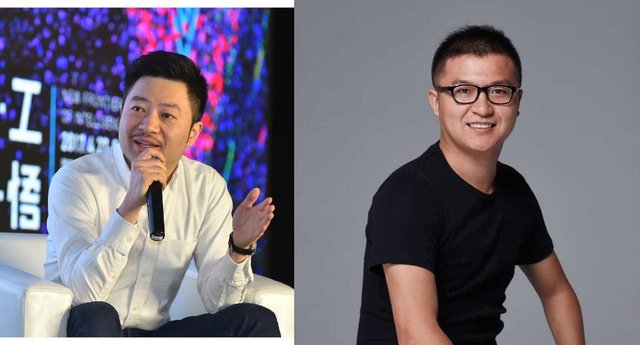From Blockchains To Mooncakes: Two Chinese Crypto Founders On The ICO And Bitcoin Exchanges Ban
These are the show notes for the Unchained podcast, available on Google Play, iTunes, iHeartRadio, Stitcher or TuneIn Radio, and sponsored by OnRamp.
A year ago, Bitcoin had become, in many ways, a Chinese story. More than 90% of Bitcoin trading took place there, on exchanges that charged no-trading fees. The majority of Bitcoin miners were located there due to the cheap electricity. And the biggest Bitcoin mining equipment manufacturer in the world, Bitmain, is a Chinese company.
While it’s still true that China is dominant in mining and manufacturing mining equipment, that is no longer of Bitcoin’s trading volume. Around New Year’s, when China banned no-fee trading and began enforcing other regulations on Chinese Bitcoin exchanges, trading of Bitcoin in China plummeted, and over the course of the year, Bitcoin trading shifted toward countries like Japan.
Still, it was a surprise to many when, a few weeks ago, China banned this year’s runaway crypto trend: initial coin offerings. Even more, authorities asked token issuers to refund participants’ money. Then, within two weeks, the Chinese central bank, the People’s Bank of China, told Bitcoin exchanges they had to close as well.
What happened?
“In the past few weeks, there were 10 ICOs every week, and a lot of people don’t understand Bitcoin. They don’t know what Bitcoin is. They’re just coming in and want to make big money. When the situation got worse, old ladies were investing their retirement savings, and the government stepped in,” said Da Hongfei, cofounder of NEO, a blockchain platform for digital assets and smart contracts, in the latest episode of my podcast, Unchained (Google Play, iTunes, iHeartRadio, Stitcher or TuneIn Radio).
Courtesy of Da Hongfei and Patrick Dai
Da Hongfei of Qtum and Patrick Dai of NEOPatrick Dai, the cofounder of Qtum, said that as ICOs took off in popularity, people seemed to forget their initial purpose. “The initial idea of the ICO is, okay, I have a good idea, I want to build an open source project, no business model. OK, I need the community to support me, to donate to me some money.” Instead, a lot of traditional businesses decided to do ICOs — like a mooncake company.
Then, there were the actual Ponzi schemes and other scams that were cropping up. That made people associate ICOs with fraudulent activity.
“ICO is just a method for you to raise money. ICOs itself is not a scam. Some ICO projects are a scam, but people in China cannot distinguish the difference. They do not understand what is an ICO or an ICO project. They, Oh, all think ICOs are scams, or that an ICO itself is a scam," said Dai.
Plus, he said, it became too easy for people who didn’t know what they were doing to invest. He said the country had 65 ICO broker platforms that lowered barriers to entry.
As for the refund back to investors, well, Da says not a single NEO investor has yet requested one.
As much of a dampener the ICO ban was on the Chinese token market, the bitcoin exchanges closings had an even bigger impact in China. When discussing the bitcoin exchanges ban, Dai said, “People even more surprised and scared. Some new people who just joined the industry this year, maybe a few months ago, and they all think the bitcoin price will always go up and they invested a lot into bitcoin, and after BTC China confirmed they will close the exchange, the price went down 25-30%, so you can see people scared bitcoin may become useless in the future.”
But despite fears that the price of bitcoin could crash and many newcomers may be selling, others have used the dip to buy more, said Da and Dai.
So, what are NEO’s and Qtum’s plans going forward? Qtum will be moving its focus to other countries, opening and office in Denver. NEO is working on a global legal framework for smart contracts on NEO so that people holding token sale on NEO can do it legally in most major countries. And — both projects want it known that they are hiring.
Tune in to the full episode (Google Play, iTunes, iHeartRadio, Stitcher or TuneIn Radio, web) to hear how Chinese regulators seemed to be defining tokens vs. virtual currencies, what kind of crypto fundraising is still permitted, and whether or not these bans are permanent or temporary.
I'm a senior editor covering crypto assets and host the crypto/blockchain podcast, Unchained (Google Play, iHeartRadio, iTunes, Stitcher, TuneIn). Follow me at @laurashin.

Thanks. I followed you, and gave you an upvote.
Of course, I plan to share many news stories and other information that may not always be seen. When I browse Steemit I usually stumble across articles I have never seen before, so it feels good to contribute to that!